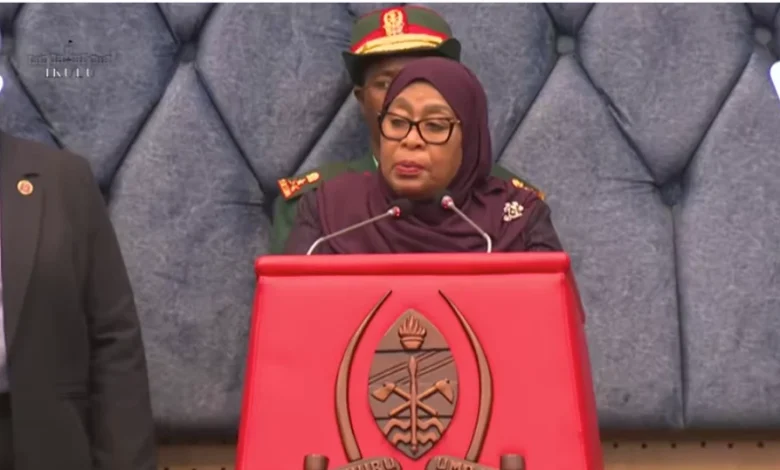Govt unveils reforms to empower private sector for growth

DODOMA: PRESIDENT Samia Suluhu Hassan has reaffirmed the domestic private sector as a key driver of Tanzania’s economic growth, unveiling a series of reforms aimed at improving the business environment, boosting industrial production, creating youth employment and easing the cost of living.
In her inauguration of the 13th Parliament on Friday, President Samia said the government will continue supporting the private sector by completing the implementation of the Business Environment Improvement Programme (MKUMBI).
She added that the government is preparing to act on recommendations from the Tax System Review Commission to create a more predictable and business-friendly environment for traders.
Highlighting economic stability as a priority, President Samia emphasised controlling inflation to reduce the cost of living for citizens and ensure efficient business operations.
She further announced plans to expand both tax and non-tax incentives to support domestic industries in producing competitively priced goods for local and international markets.
ALSO READ: Tanzania pledges to work on constitutional reforms in 100 days
“We are committed to stimulating production and strengthening the competitiveness of locally made products,” she said.
On youth empowerment, the President outlined plans to widen access to business training and registration on the Tanzania National e-Procurement System (TANSIS), enabling young people and small business owners to participate in government procurement.
She said the government, through the Vocational Education and Training Authority (VETA), will introduce specialised vocational programmes linked to national strategic projects such as the Standard Gauge Railway (SGR), port development, blue economy initiatives, mining and gas.
“These programmes will give young people practical exposure and prepare them for employment,” she added.
The government will also establish Skills Development Zones to enhance hands-on training and explore special incentives for private companies that create large numbers of youth jobs.
Mentorship and leadership development programmes will be strengthened in higher learning and training institutions to prepare the next generation of national leaders.
On access to finance, President Samia said the administration of the 10 per cent local government loans will be reviewed, stressing that the funds are seed capital, not grants.
“These funds are meant to grow businesses and their returns must be visible,” she emphasised.
The President expressed her ambition that by 2030, Tanzania will have a new generation of youth investors capable of employing their peers. In collaboration with the private sector and development partners, the government will also promote financing for women-led businesses.
For market-operating women, she pledged to strengthen economic empowerment funds, formalise businesses to improve access to credit and invest in market infrastructure including water and sanitation, health services and childcare facilities.
President Samia further promised to prioritise allocation and formalisation of business areas for small and medium-sized entrepreneurs to ensure they operate without harassment and contribute meaningfully to the national economy






Govt unveils reforms to empower private sector for growth.
Hili limenigusa sana, sekta binafsi tunalia na Kodi. Bidhaa zetu tunazozalisha haziuziki kutokana na Kodi kandamizi ukilinganisha na zile za nje. Imefika hatua najiuliza Ina maana bidhaa Toka nje Kodi zao ni nafuu au malighafi zetu ni ghali sana kiasi kwamba Hadi mzalishaji akifika final product Tzs.5000/=, final product ya nje inaletwa kwa Tzs 4000/=. Hakuna pa kusemea. Kama Mh Rais ameliona! Alhamdulilahi.